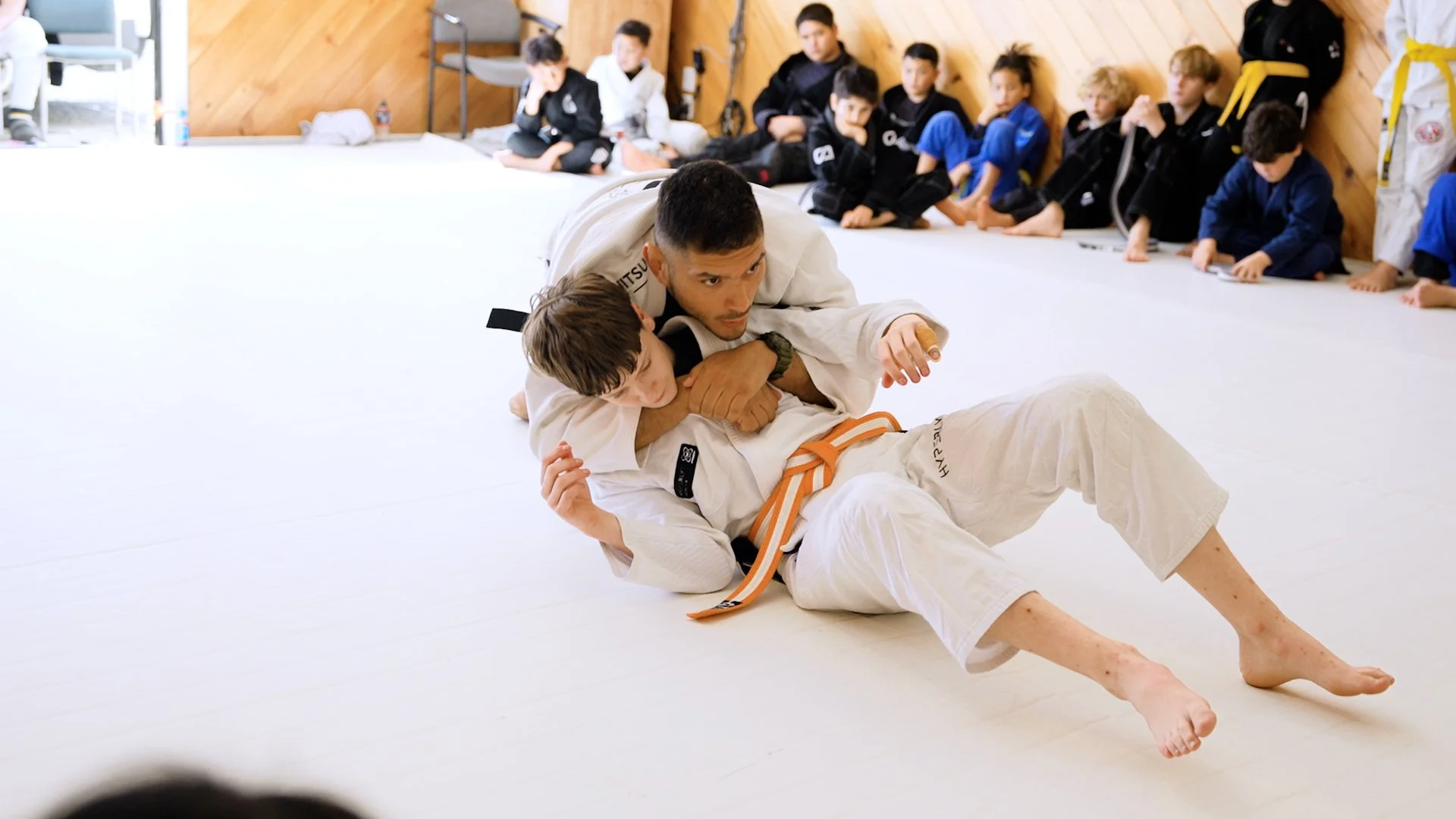Beyond the Seminar: How to Make BJJ Camps and Seminars Stick for Your Child
At The Agoge Project, we work hard to bring world-class training to local kids in New Zealand—and that includes exposure to elite instructors through seminars and camps. But here's the truth:
Attending a BJJ seminar doesn’t automatically level you up. What happens after the seminar is where the real gains are made.
For your child to truly absorb and retain what they’ve learned, they need a post-seminar plan. Without it, that flashy new system or slick back take will likely fade into memory. So let’s talk about how to maximize the impact of every seminar or camp experience—and turn knowledge into lasting skill.
1. Shift the Goal: It’s Not About Learning Everything
Most seminars are firehoses of information. In a two-hour session, your child might see 10–15 new techniques. They won't remember all of it—and that's okay.
Focus on depth, not quantity. The goal should be to walk away with 1–2 techniques or concepts your child connects with, and build from there.
“Learning is not adding more, it’s about remembering what matters and building on it.”
— Josh Waitzkin, learning expert & BJJ black belt
2. Take Notes—Together
Don’t rely on memory. After the seminar, help your child:
Write down key details: positions, grips, transitions, and common mistakes.
Sketch movements or sequences if they’re visual learners.
Highlight concepts or ideas (e.g., framing from the bottom, controlling tempo).
You can even create a “Seminar Journal” where your child logs each event, what they learned, what they want to drill, and when they’ll revisit it.
3. Record (If Allowed) and Review
If the instructor allows video recording, take advantage. Film:
The full technique demo
Key coaching points or concepts
Your child is doing the technique with a partner
Then, create a habit:
Watch the video again 24–48 hours after the seminar
Break it down into mini-drills
Rewatch every 1–2 weeks for refreshers
Pro tip: Use slow motion or pausing tools (like Coach’s Eye or BJJ Flow) to really analyze the details.
4. Drill With Intention
Once your child has picked their 1–2 key techniques, the next step is to turn knowledge into muscle memory.
Create short, focused drilling sessions:
3–5 minutes a day on the seminar module
Add resistance after a few days
Start applying it during live rolls
Repetition is key—but intelligent repetition is even better. Focus on doing it right, not just doing it often.
“Repetition without correction is just rehearsal for mistakes.”
— John Danaher
5. Teach It to Others
This is one of the most powerful retention tools.
If your child can explain the move to a teammate, it means they truly understand it. Encourage them to show it to a training partner, or even review it out loud at home.
Teaching reveals gaps in understanding—and strengthens retention.
6. Track Usage in Live Training
Make it a challenge: “Can you hit that new move during sparring this week?”
Help your child track:
How often do they attempt the move
Success rate
What’s stopping them (timing, grips, fear of failure)
Over time, they’ll learn how to troubleshoot and adapt techniques to real-life scenarios, not just drilling.
7. Schedule a Review Week
Every 4–6 weeks, go back to the “Seminar Journal” or videos and revisit the techniques. Ask:
Can you still remember it?
Can you still apply it?
Has your understanding changed?
This cycle of review, refine, and reapply is what locks a skill in for life.
Bonus: Keep the Bigger Picture in Mind
BJJ camps and seminars are about more than just technique:
They expose your child to different styles and personalities
They build community and peer connection
They inspire motivation and long-term vision
Even if your child walks away with just one new detail or mindset shift, it’s worth it. But with the right system, they’ll walk away with much more.
Final Thoughts: Don’t Just Attend—Absorb
Seminars and camps can accelerate your child’s Jiu-Jitsu journey—but only if you treat them like starting points, not endings.
At The Agoge Project, we believe in training with intention, reflecting with purpose, and building habits that last. Help your child develop these habits, and every seminar they attend will compound their progress, not just fill their notebook.
Show up. Pay attention. Take notes. Drill smart. Revisit. Share. Level up.




